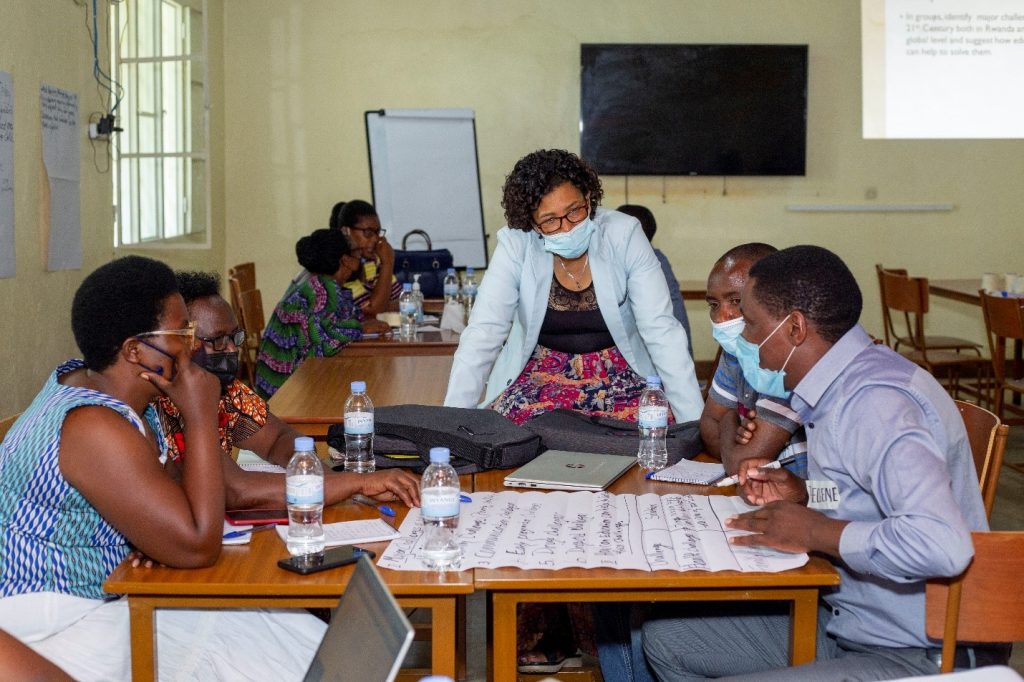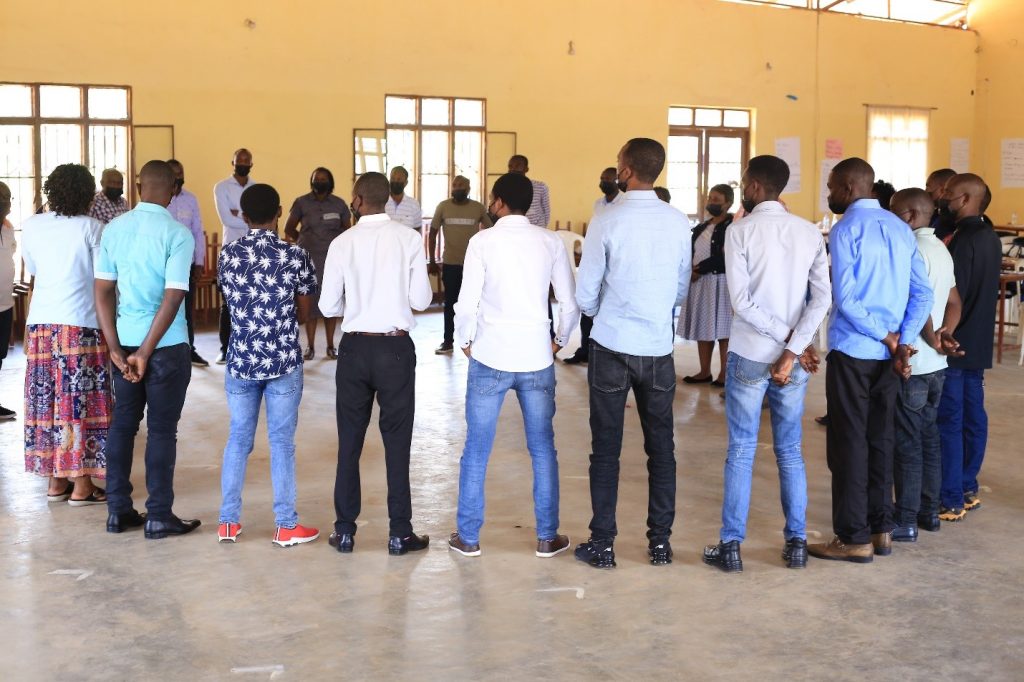Sector-Based Mentor Trainers (SBMTs), from all the 30 districts of Rwanda, concluded training on how to integrate Learning through Play (LtP), in the Rwandan in-service teacher training programme. As part of the design of the national School-based Mentorship Programme, SBMTs are the coordinating corps of the general School-based Mentor (SBM) community in all public and Government-aided schools, mandated to support school-based in-service teacher development.
The training was also aimed at supporting the SBMT to understand Learning through Play better, its application in the primary school competence-based curriculum, understanding of play materials to support learning by including no-cost materials and how they can practically be used to facilitate learning for primary school children, using content from the primary school competence-based curriculum.Learning through Play (LtP) is an integrated pedagogical approach which seeks to engage the learner in an active and fun approach to learning, fostering learner-directedness for optimal achievement of learning outcomes. LtP seeks to make learning joyful, socially interactive, meaningful, actively engaging, and iterative problem-solving.

The LEGO Foundation, UNICEF, the Ministry of Education through the Rwanda Basic Education Board and IEE are collaborating to support the integration of Learning through Play as a pedagogical approach, in support of implementing the primary school competence-based curriculum in Rwanda. UNICEF in collaboration with the LEGO Foundation and Rwanda Basic Education Board will distribute a package of Learning through Play materials to public and Government-aided primary schools to support play-based teaching and learning. These materials include wooden rectangular blocks,wooden dice, wooden alphabet letter cards, wooden number blocks, number line – numbers 1-10 and letter line – small letters a-z.
“It is high time teachers started using teaching approaches that interest student learning, rather than emphasizing strict content memorization, and mental work does not favor effective leaning, therefore my role will be to encourage Head teachers and teachers to integrate learning through Play in the teaching process, for students to enjoy learning”, said Hortence Uwemewe, a Sector-Based Mentor Trainer from Kanyinya Sector, Nyarugenge district.
After this training, the Sector-Based Mentor Trainers are expected to train School-Based Mentors, advocate for the use of Learning through Play in schools, being considered as a natural learning process for children, how it contributes to children’s development and how Learning through Play can be delivered within the Competency-Based Curriculum at all Primary school levels.
While addressing Sector-Based Mentor Trainers at Lycée de Kigali, the Deputy Country Director of IEE, Betty Kabera, encouraged them to strive for better performance in bringing about quality Education and working beyond schools to make learning through play appreciate by parents and community members as a natural way through children learn. She further urged them to empower School-Based Mentors with skills that would enable them guide schools into applying playful pedagogy.Learning through Play Material Package also includes a Guidebook entailing philosophical, psychological, and sociological bases for Learning through Play, with sample play-based lessons to support rollout of this program in all primary schools. It is intended that all SBMTs be trained to understand Learning through Play for children’s learning, and to take it further in their school-based Continuous Professional Development (CPD) for all teachers, particularly primary school teachers.

Adelphine Uwase, the District Education Officer (DEO) in Gasabo district, said that teachers need to embrace Learning through Play since it makes learning very easy, practical, and hands-on. She stressed the need to develop capacity of teachers for successful implementation of this program countrywide.
A teacher as a curriculum implementer, is a critical stakeholder in supporting children’s Learning through Play. More so, play-based learning is important to a child’s development of social and emotional skills, such as the ability to develop positive relationships with peers. As children play together, they learn to get along with one another, cooperate, communicate effectively, and solve problems. The Learning through Play programme therefore is a timely programme to build on learner-centred teaching approaches proposed in the curriculum, to engage learners actively in their learning to maximize achievement of learning outcomes.
Reactions to this content may be addressed to: ieerwanda.directorate.org@gmail.com
